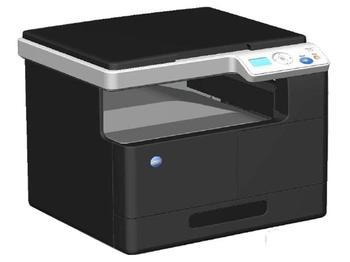 Su Bo, the vice minister of the Ministry of Industry and Information Technology, pointed out at the 2013 China ICT (Information and Communications Technology) Conference for Promoting Low-carbon Economy Development that energy-saving products such as notebook computers, copiers, printers, and high-efficiency lighting will be included in energy-saving products.
Su Bo, the vice minister of the Ministry of Industry and Information Technology, pointed out at the 2013 China ICT (Information and Communications Technology) Conference for Promoting Low-carbon Economy Development that energy-saving products such as notebook computers, copiers, printers, and high-efficiency lighting will be included in energy-saving products. Su Bo, vice minister of the Ministry of Industry and Information Technology, stated that in order to further promote ICT for green and low-carbon development, the Ministry of Industry and Information Technology will accelerate the implementation of a green IT strategy, develop low-energy CPUs, energy-efficient power supplies, and energy-efficient computers, promote the withdrawal of old high-energy-consuming equipment, and support communications. Base station energy saving and transformation; implementation of "digital energy" plan; promotion of energy saving in electronic information manufacturing, support for energy saving and energy saving technology innovations such as solar photovoltaic, CLED, implementation of "0.5W" standby power project, mandatory implementation of 0.5W standby power consumption, To develop green manufacturing and ecological design pilots for electronic information products; to implement policies for the promotion of high-efficiency and energy-saving electronic information products. Implement energy-saving products to benefit the people's projects, promote the adoption of energy-saving products such as photocopiers, printers, notebook computers, and high-efficiency lighting into the scope of policy support, and use policies to support efforts to increase the promotion of energy-saving products.
It is understood that the home appliance subsidy policy will expire at the end of this month, although the Ministry of Industry and other three ministries have not explicitly stated whether there is a follow-up policy, but the industry generally believe that the stimulus policy to advance the advance consumption of home appliances, is not conducive to home appliance companies in accordance with market rules for industrial restructuring . Home appliance subsidies may end. At this time, the Ministry of Industry and Information Technology said externally that it will promote the use of energy-saving products such as photocopiers, printers, and notebook computers in energy-saving and people-friendly projects, and market watchers expressed to home appliance consumption networks that “this may be a policy of subsidizing household appliances.â€
"Energy-saving products benefiting people's projects" was jointly launched by the National Development and Reform Commission, the Ministry of Industry and Information Technology, and the Ministry of Finance in June 2009, and is intended to promote energy conservation and emission reduction strategies. Financial subsidies for products that meet primary and secondary energy efficiency. Household appliances consumption network was informed that, at present, air-conditioning, refrigerators, flat-panel TVs, washing machines, motors, new energy vehicles and other energy-efficient products were selected for energy-saving products Huimin project.
Energy-saving subsidies have not only provided consumers with benefits, but also encouraged companies to develop energy-saving products more actively. According to calculations, the implementation of the "Energy-saving Products Benefiting the People's Project" can save 75 billion kilowatt-hours of electricity each year, which is equivalent to building 15 million kilowatt-class coal-fired power plants and reducing 75 million tons of carbon dioxide emissions.
Draw-wire sensors of the wire sensor series measure with high linearity across the entire measuring range and are used for distance and position measurements of 100mm up to 20,000mm. Draw-wire sensors from LANDER are ideal for integration and subsequent assembly in serial OEM applications, e.g., in medical devices, lifts, conveyors and automotive engineering.
Linear Encoder,Digital Linear Encoder,Draw Wire Sensor,1500Mm Linear Encoder
Jilin Lander Intelligent Technology Co., Ltd , https://www.jllandertech.com